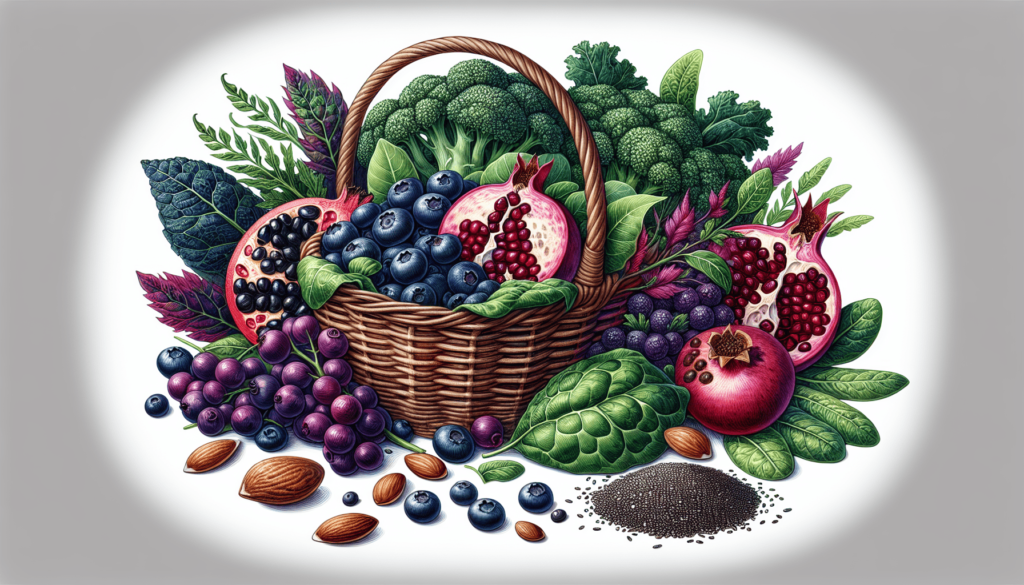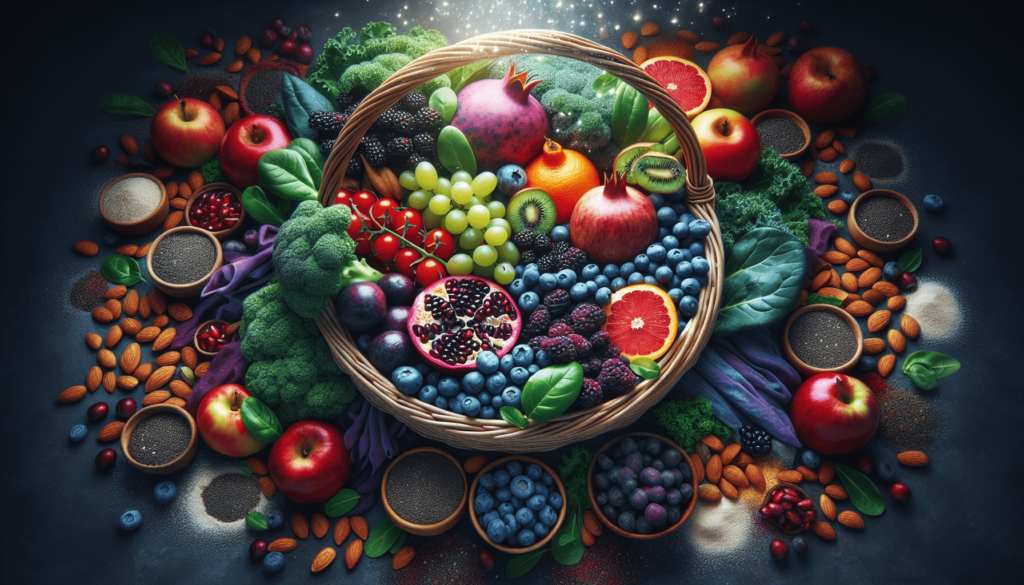Diving into the world of superfoods can open up a vibrant spectrum of health benefits that are both delicious and nourishing. Superfoods are not just a trendy buzzword but are distinguished by their exceptional nutrient density, which supports various bodily functions from boosting your immune system to enhancing your energy levels. In this guide, we’ll explore what makes these foods super, the top superfoods to integrate into your diet, and how their potent vitamins, antioxidants, and minerals can make a significant difference in your wellness journey. By incorporating these power-packed foods into your meals, you’re not just eating; you’re upgrading your body’s potential! Ever wondered why some foods are labeled as superfoods and what actually sets them apart from the rest? Well, it’s not just a trendy label. Superfoods are packed with vitamins, minerals, and antioxidants that are crucial for your mind and body, boosting your health and potentially warding off diseases.

What Exactly Are Superfoods?
The Definition of Superfoods
Superfoods don’t have their own food category, and they are not officially classified by any major nutritional body. However, they are generally recognized as foods that have an exceptionally high nutrient density. This means they provide a substantial amount of nutrients and very few calories. They contain a high volume of minerals, vitamins, and antioxidants.
Examples of Common Superfoods
Let’s look at some examples to better understand these nutritional powerhouses:
- Berries: Blueberries, strawberries, and raspaces are among the favorites. High in fiber, vitamins, and antioxidants, they are known to reduce disease risk.
- Leafy Greens: Spinach, kale, and Swiss chard are loaded with vitamins A, C, E, and K and may protect against certain chronic diseases.
- Green Tea: Famous for its antioxidants, green tea can enhance brain function and promote fat loss.
- Nuts and Seeds: Almonds, chia seeds, and flax seeds are good sources of essential fatty acids, vitamins, and minerals.
Why Are Superfoods Important?
Nutrient Density and Health Benefits
One of the standout benefits of superfoods is their nutrient density. Nutrient density is a measure of the amount of nutrients a food contains in relation to the number of calories. Eating these nutrient-packed foods helps in maintaining immune system health, reducing inflammation, and protecting your organs from toxins.
Disease Prevention
Many superfoods contain antioxidants — substances that help reduce oxidative stress in your body by neutralizing free radicals. Conditions such as heart disease, cancer, arthritis, stroke, respiratory diseases, immune deficiency, emphysema, and Parkinson’s disease have all been correlated to oxidative stress.
How Superfoods Support Overall Health
Boosting the Immune System
Foods like citrus fruits, red bell peppers, and garlic are renowned for bolstering the immune system. These foods are high in compounds like vitamin C and selenium which play a part in immune defense.
Enhancing Gut Health
Fermented superfoods like yogurt and kefir are loaded with probiotics, beneficial bacteria that play an essential role in digestion, nutrient absorption, and protecting against harmful bacteria.
Supporting Brain Function
Certain superfoods, such widgets as oily fish and nuts, are rich in omega-3 fatty acids, which are essential for brain health. They enhance cognitive processes and may reduce the likelihood of developing mood disorders such as depression.
Implementing Superfoods into Your Diet
Start with What You Love
An easy way to start incorporating superfoods into your diet is by adding them to the meals you already enjoy. Love smoothies? Throw in some spinach or a scoop of chia seeds to boost the nutrient content.
Eat the Rainbow
A colorful diet is often a nutrient-rich diet. Try to incorporate a variety of fruits and vegetables into your meals. Each color usually represents different nutrients that can help you achieve a balanced diet.
Replace, Don’t Just Add
Incorporate superfoods by replacing other items rather than adding to your existing calorie intake. For example, swap out white rice with quinoa or trade in your regular potato chips for a serving of nuts.

Challenges and Considerations
The Cost of Superfoods
It’s true that some superfoods can be expensive. However, not all superfoods will break the bank. Options like spinach, eggs, and oats are relatively affordable and still provide impressive health benefits.
Balance and Variety
While superfoods are beneficial, they are not a cure-all, and they should be part of a diverse diet. Over-relying on superfoods can lead to a lack of nutritional balance which can have its own negative health impacts.
Superfoods Myths and Facts
Myth: Superfoods Can Cure Diseases
No food, regardless of how “super” it is, can cure diseases on its own. Superfoods are best utilized as part of an overall healthy diet and lifestyle for disease prevention and health maintenance.
Fact: Superfoods Are Accessible and Diverse
Superfoods are not just exotic and expensive items. Many everyday ingredients that may already be in your kitchen qualify as superfoods, like the humble potato or the apple.
Myth: You Need Superfoods to Be Healthy
You can achieve a nutrient-rich diet without necessarily including those often marketed as “superfoods”. A well-balanced diet consisting of a variety of fruits, vegetables, proteins, and fats can provide similar health benefits.
Conclusion
Superfoods are indeed powerful allies in your quest for health and wellness, loaded with nutrients that help fight disease, boost your energy, and maintain your immune system. However, they are just one part of a healthy lifestyle. Balance, variety, and moderation are key to a healthy diet, and while superfoods can be a helpful boost, they aren’t a miracle cure all by themselves. So go ahead, sprinkle those berries, toss that spinach into your salad, and sip on that green tea, knowing you’re giving your body some of the best fuel nature has to offer.
